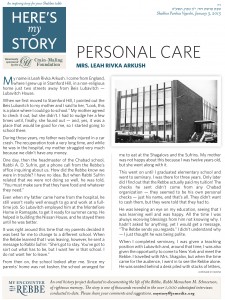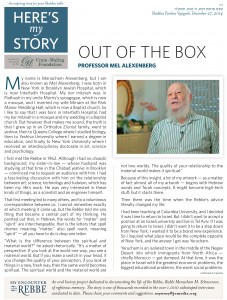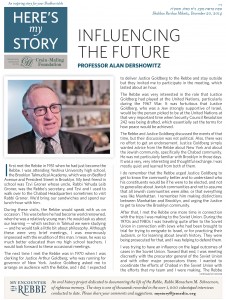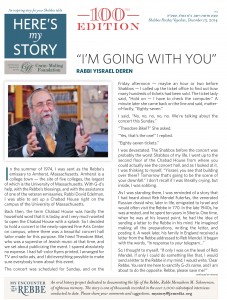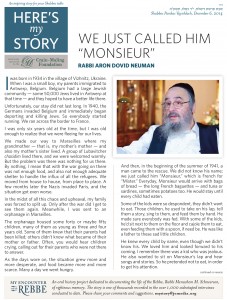HMS: Personal Care
My name is Leah Rivka Arkush. I come from England, where I grew up in Stamford Hill, in a non-religious home just two streets away from Beis Lubavitch – Lubavitch House.
When we first moved to Stamford Hill, I pointed out the Beis Lubavitch to my mother and I said to her, “Look, this is a place where I could go to school.” My mother agreed to check it out, but she didn’t. I had to nudge her a few times until, finally, she found out – and, yes, it was a place that would be good for me, so I started going to school there.
During those years, my father was badly injured in a car crash. The recuperation took a very long time, and while he was in the hospital, my mother struggled very much because we didn’t have any money.
One day, then the headmaster of the Chabad school, Rabbi A. D. Sufrin, got a phone call from the Rebbe’s office inquiring about us. How did the Rebbe know we were in trouble? I have no idea. But when Rabbi Sufrin related that we were not doing so well, he was told, “You must make sure that they have food and whatever they need.”
Even when my father came home from the hospital, he still wasn’t really well enough to go and work at a full-time job. So Lubavitch employed him at the Montefiore Home in Ramsgate, to get it ready for summer camp. He helped in building the Nissan House, and he stayed there until he was better.
It was right around this time that my parents decided it was best for me to change to a different school. When the Rebbe learned that I was leaving, however, he sent a message to Rabbi Sufrin: “She’s got to stay. You’ve got to sort out what has to be, but I want her in that school. I do not want her to leave.” (more…)


